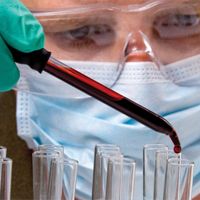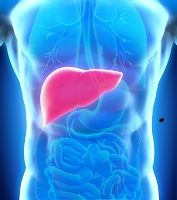Article
What We Learned About Hepatitis C in 2015
Author(s):
Over the past year, researchers have dug deeper into uncovering novel approaches to hepatitis C testing, treatment, and comorbidities and have made some great discoveries.

Over the past year, researchers have dug deeper into uncovering novel approaches to hepatitis C testing, treatment, and comorbidities and have made some great discoveries.
About 75% to 85% of patients with acute hepatitis C will develop the chronic condition, according to the Centers for Disease Control and Prevention (CDC). Most people contract the disease from sharing needles to inject drugs; however, blood transfusions and sexual contact are also routes for transmission.
Read on to catch up on the key hepatitis C findings from 2015, and stay up-to-date with the MD Magazine Hepatitis C condition center.

Although baby boomers make up 75% of Americans living with chronic hepatitis C, the majority are unaware that they are infected.

It is well-known that patients with hepatitis C face a higher risk of liver complications; however, a new study discovered that the heart could also be in trouble.

Questions around the price of treatments for hepatitis C virus have been all over the news lately. A mini-tempest seems to be brewing, with a recent report from Senators Ron Wyden (D-OH) and Charles Grassley (R-IA) that Gilead Sciences charged more for its blockbuster hepatitis C virus medications Sovaldi and Harvoni than required.

Experts from the Public Health Service and President Obama’s Advisory Council on HIV/AIDS have asked the administration in a letter to widen access to new, high-cost medications that successfully treat hepatitis C.

How could an effective, inexpensive hepatitis C virus drug have been available at local pharmacies without clinicians and patients knowing it? Researchers from the National Institutes of Health (NIH) have the answer.

Researchers from Hiroshima University have created a system to detect a drug-resistant viral strain mutation in hepatitis C cases.

Researchers say they have developed a method to screen for hepatitis C using a urine test that is faster and cheaper than traditional blood tests.

The $1,000 a pill cost of the new hepatitis C drugs has put them out of reach for many people in the US, and strained Medicaid budgets in many states. But people in Egypt are getting some of these drugs for $8 a pill.

African Americans are more likely to be infected with the virus than Caucasians, but that does not mean they are more likely to die.

While less than 25% of centers in the United States offer kidney transplants to those infected with the human immunodeficiency virus (HIV) those patients are proving to have better outcomes than those with hepatitis C following the surgery.

The breakneck pace of clinical research means that, by necessity, there is little time to assess the past. But research published earlier this year in the Journal of Virology on the origins of the hepatitis C virus shows that such examination is not a morbid trip down memory lane, but rather can deliver key insights into current prevention efforts.

The battle over prescription exclusivity of new hepatitis C drugs continued recently when CVS Caremark revealed a new agreement with drug maker Gilead Sciences to list only Harvoni and Sovaldi on its formularies.





